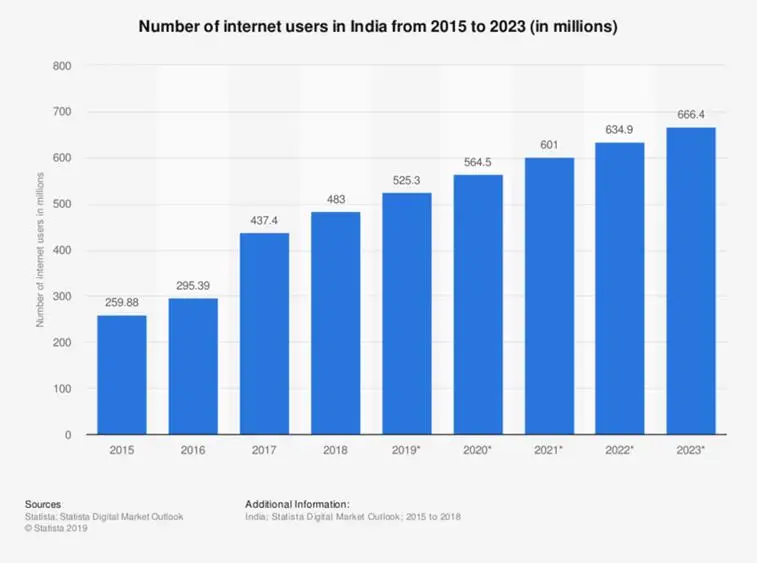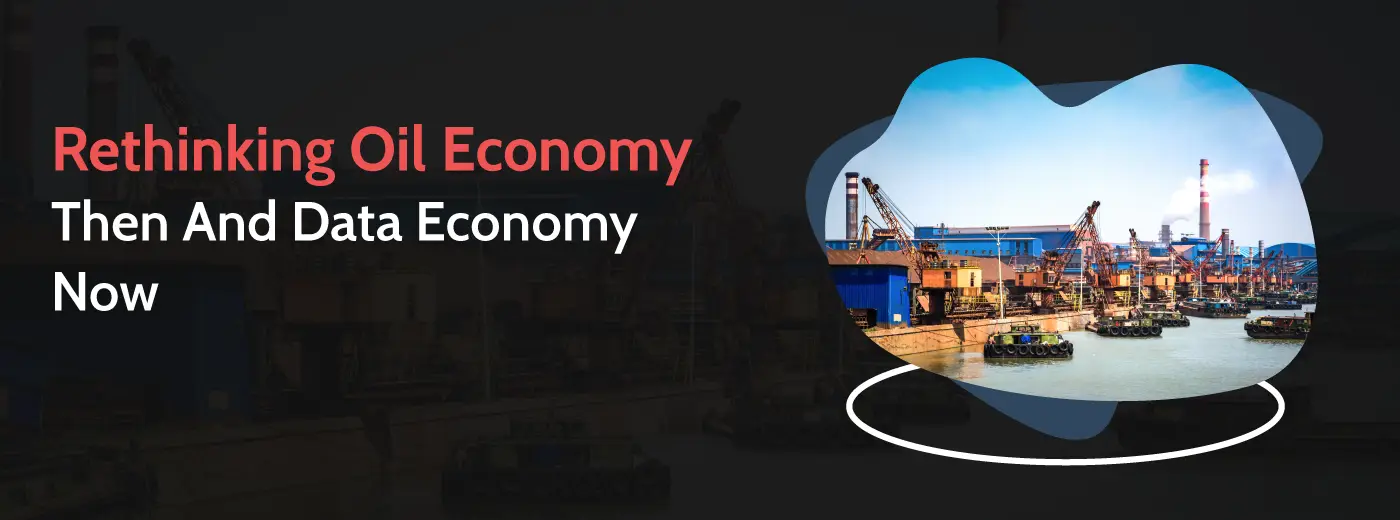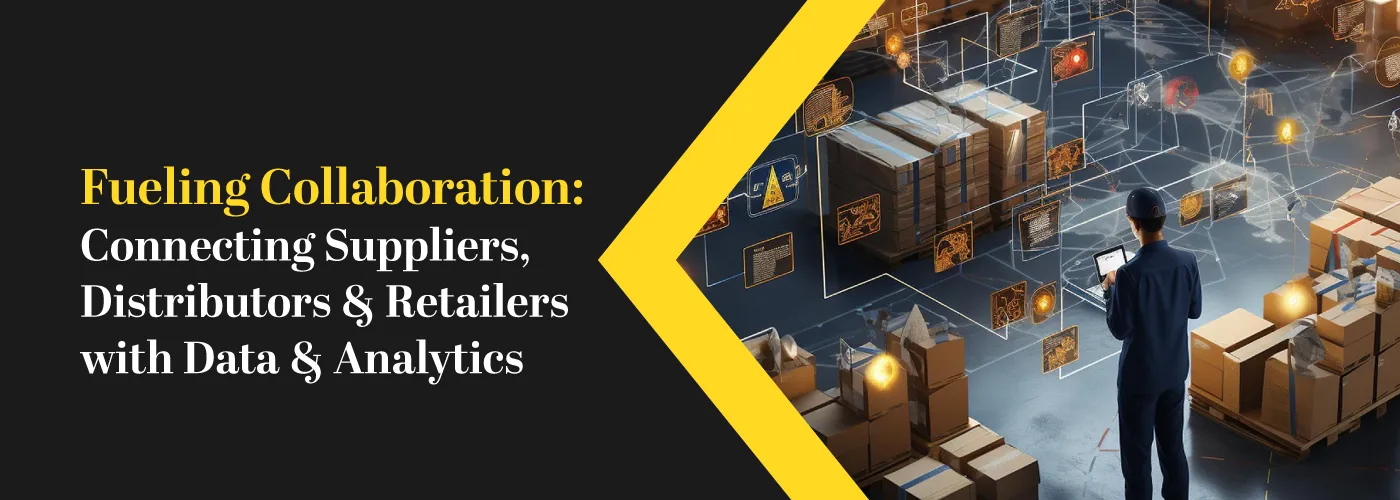History has witnessed many wars fought over oil, the Iran-Iraq war, the Falklands war, the Chaco War, and even World War II. Such incidents are enough to claim the importance of oil in the world. The importance of oil as a crucial natural resource was foresighted a long time ago. Thanks to such foresightedness, oil supported industrialization quite well in the 20th century.
As time changed, digitalization got infused into the human lifestyle, which paved the way for other elements, such as data. Today, data has become an essential element of different spheres of life. The Internet has taken the world by storm, and with each passing time, the number of users on the Internet is continuously escalating. As per an analysis done by Statista, users on the Internet will continue to grow, resulting in an increased number of data each year.

Is Data as Valuable as Oil?
Due to the increasing demand for data, many experts have been comparing data with oil. These experts have also been stating data as the new oil of the 21st century. It was in the year 2006 first when Clive Humby, a UK Mathematician mentioned;
"Data is the new oil. It's valuable, but if unrefined, it cannot really be used. It has to be changed into gas, plastic, chemicals, etc., to create a valuable entity that drives profitable activity; so must data be broken down, analyzed for it to have value."
After this, many other experts also claimed the parallels between the oil economy and the data economy. But while many experts were busy noticing similarities between the physical resource oil and the digital resource data, there were many others who considered many differences between these two resources. Moreover, it is still a matter of debate as different people show different aspects about these two resources.
Become a data-driven business to drive sustainable growth with our robust Data analytics services.
Let's make a comparison between oil and Data
The importance of data in regular lifestyle has stated its similarity with oil. But there have been several points where these two resources can be differentiated.
| Similarities | Differences |
|---|---|
| Both data and oil can be transformed into different products. You can produce anything from plastics and gas to detergents, toiletries, dyes, and movie film from oil. Data can be converted into info that fuels human and AI decision-making processes, which in turn enable self-driving cars, improve an organization's efficiencies, develop speech recognition software, find cures to diseases, and much more. | Oil can only be utilized once; data can be used over and over again. Though a single process can only use oil at any one time, data can be accessed by a limitless number of concurrent uses. |
| Both data and oil fuel economies. Oil can be seen as the fuel to the industrial economy and data to the information economy. | Oil is a limited resource. Data is seemingly unlimited. Even with the enhanced number of data privacy regulations being implemented, there's still plenty of data to mine, and more is coming all the time. |
| The amount of power someone can be correlated to their control of and access to these resources. The president and CEO of Mastercard in Saudi Arabia told the audience, the world's largest oil producer, that "data could be as effective as oil as a means of generating wealth." Data is a robust resource for improving wealth (your enterprise's bottom line). | The time it takes to create data and to create oil are vastly different. Under artificial conditions, it can take around a few hours to days to create gallons of oil in the lab. Naturally, it can take millions of years. About 70% of current oil deposits are derived from the Mesozoic period, which lasted from 65 million to 252 million years ago. In contrast, data can be curated as rapidly as a millisecond. Over the last couple of years alone, 90% of the data in the world was generated. |
| Both oil and data spills result in expensive consequences. We all apprehend reading reports of oil spills; they affect both the environment to an extent and the natural resources are available in that environment. Similarly, data breaches are a tremendous privacy and security concern that affects the owners and stewards of that Data and its consumers. | Only a limited number of companies can process oil. Data analysis and collection aren't constrained -- any enterprise can do it. |
| Both oil and data need proper governance and management to gain significant benefits from them. | It would help if you never compared apples and oranges. Still, the storage costs of oil are way higher than the data storage costs, which in contrast, is nearly immaterial to your organization's budget. |
Apart from this above comparison, experts have also found a narrow line of similarity between the resources that offer these two resources to run parallel to each other.
When talking about oil, spillage is undoubtedly an essential discussion. Spillage of oil does not just lead to loss of the dealers but also causes a lot of destruction in different ways. The spillage of oil in the ocean has always been a matter of concern as it can cause humongous damage to marine life. Similarly, spillage of oil in other places can also cause similar damages. Today, with increased technologies, several precautions are taken to control such spillage issues, but accidents still occur once in a while.
Currently, digital technology ensures that Data is maintained most securely. But still, similar to oil, there always remains a risk of spillage of data too. When Data leaks out too, it can cause damage to the reputation of the organization, and it can cause some other damages too, such as chances of theft when customer data is leaked. But of course, professionals today are extra competent to make sure that such instances do not happen.
What does this mean to the corporate world?
Invest in data infrastructure
Unlike oil, Data is a resource that needs both storage and collection infrastructure to maintain. If you are part of an organization that plans to take benefits of data mining or analytics, you are required to ensure that you have proper data infrastructure in place to manage your data. Whether your data management solution exists on the cloud or on a physical server of your own, you need to make sure it is available, fault-tolerant, and cost-effective.
Collating quality data that is useful
The quality of any analytics solution is dependent on the data utilized to build it. Low-quality data leads to low-quality analytics. High-quality data leads to high-quality analytics. If your raw Data contains inaccurate or missing info, you may've to refine it until it reaches the level of quality that you require for analytics.
Adding value with Data
While much oil is not necessary to make a combustion engine perform better, more data has the power to produce more solid predictive models. Having a system that enables you to store and collect more data for training and refining models will enable you to turn data into an asset that keeps adding value to your business. Be aware of the ethical glitches involved in data analytics
Data analytics is robust, but with great power comes great responsibility. Data, especially consumer data, is a resource that must be handled ethically and responsibly. Always consider your work's ethical and legal implications if you plan to use customer data or otherwise private data for analytics.
Let us know about your business thoroughly and help you start your Data Assessment.
Final Thoughts
Therefore, it can be witnessed that today's data economy is rightfully compared with the oil economy of the past. The data industry is booming today and has a prosperous future ahead with the integration of even more innovative technologies such as Artificial Intelligence, ML, and more that will help in boosting up the digital transformation process.
In the current scenario, projects require effective management, and this is possible by conducting a Discovery Workshop. Polestar is a cutting-edge digital transformation & analytics firm committed to solving the most significant industry challenges and be a partner of choice for enterprises as we bring about a data-led transformation of the existing business processes.
We bring years of expertise in implementing analytics solutions suited to custom enterprise needs. Our solutions assists enterprises develop conclusive fact-based strategies, empowering users and delivering a competitive edge. Talk to our experts today!



